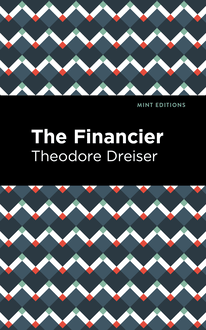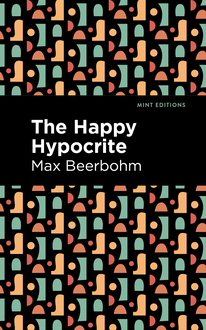-
 Univers
Univers
-
 Ebooks
Ebooks
-
 Livres audio
Livres audio
-
 Presse
Presse
-
 Podcasts
Podcasts
-
 BD
BD
-
 Documents
Documents
-
- Cours
- Révisions
- Ressources pédagogiques
- Sciences de l’éducation
- Manuels scolaires
- Langues
- Travaux de classe
- Annales de BEP
- Etudes supérieures
- Maternelle et primaire
- Fiches de lecture
- Orientation scolaire
- Méthodologie
- Corrigés de devoir
- Annales d’examens et concours
- Annales du bac
- Annales du brevet
- Rapports de stage
La lecture à portée de main
Vous pourrez modifier la taille du texte de cet ouvrage
Découvre YouScribe en t'inscrivant gratuitement
Je m'inscrisDécouvre YouScribe en t'inscrivant gratuitement
Je m'inscrisEn savoir plus
Vous pourrez modifier la taille du texte de cet ouvrage
En savoir plus

Description
Bored of the parties and luxuries that come with her socialite lifestyle, Claire Boltwood longs for something more authentic in her life. Desperate for adventure, Claire and her father decide to travel from New York City to the Pacific Northwest in their automobile, a new privilege enjoyed by the rich. Though he is a clever businessman, Claire’s father knows nothing about cars, so he encourages Claire to drive, challenging the gender stereotypes of the early 20th century. Starting in New York City, Claire and her father hit the open road, feeling exhilarated and free. As they travel northwest, they eat food from cuisine below their usual standards, see new sights, and face everyday problems that people of their privilege usually do not. Among these problems is an unexpected trouble with their car, and so the Boltwood’s are forced to stay in a small town nearby as they leave their automobile in the hands of a mechanic named Milt Daggett. Born and raised in the small, unassuming town, Milt is one of the few people within the town that aspires for more in his life. But, he was caught in a rut before he met Claire. As the two grow closer and inspire drastic changes in the other’s personality, Claire and Milt realize that the unfortunate circumstances that led to their chance encounter might have been the best thing to ever happen in their lives.
With surprising sentimentality and authenticity, Sinclair Lewis’ Free Air awakens a yearning in its reader’s soul. Featuring detailed descriptions of the Boltwood’s travels and the people they meet, Free Air creates a visceral reading experience. Set during the early 20th century in various states in America, Lewis depicts themes of class, feminism, and egalitarianism as Free Air provides an intimate look into American culture.
This edition of Free Air by Sinclair Lewis features an eye-catching new cover design and is printed in a modern font to cater to contemporary audiences.
Sujets
Informations
| Publié par | Mint Editions |
| Date de parution | 16 février 2021 |
| Nombre de lectures | 0 |
| EAN13 | 9781513279312 |
| Langue | English |
| Poids de l'ouvrage | 1 Mo |
Informations légales : prix de location à la page 0,0500€. Cette information est donnée uniquement à titre indicatif conformément à la législation en vigueur.
Extrait
Free Air
Sinclair Lewis
Free Air was first published in 1919.
This edition published by Mint Editions 2021.
ISBN 9781513279213 | E-ISBN 9781513279312
Published by Mint Editions®
minteditionbooks.com
Publishing Director: Jennifer Newens
Design & Production: Rachel Lopez Metzger
Project Manager: Micaela Clark
Typesetting: Westchester Publishing Services
C ONTENTS
I. M ISS B OLTWOOD OF B ROOKLYN IS L OST IN THE M UD
II. C LAIRE E SCAPES FROM R ESPECTABILITY
III. A Y OUNG M AN IN A R AINCOAT
IV. A R OOM W ITHOUT
V. R ELEASE B RAKES —S HIFT TO T HIRD
VI. T HE L AND OF B ILLOWING C LOUDS
VII. T HE G REAT A MERICAN F RYING P AN
VIII. T HE D ISCOVERY OF C ANNED S HRIMPS AND H ESPERIDES
IX. T HE M AN WITH A GATE E YES
X. T HE C URIOUS I NCIDENT OF THE H ILLSIDE R OAD
XI. S AGEBRUSH T OURISTS OF THE G REAT H IGHWAY
XII. T HE W ONDERS OF N ATURE WITH A LL M ODERN I MPROVEMENTS
XIII. A DVENTURERS BY F IRELIGHT
XIV. T HE B EAST OF THE C ORRAL
XV. T HE B LACK D AY OF THE V OYAGE
XVI. T HE S PECTACLES OF A UTHORITY
XVII. T HE V AGABOND IN G REEN
XVIII. T HE F ALLACY OF R OMANCE
XIX. T HE N IGHT OF E NDLESS P INES
XX. T HE F REE W OMAN
XXI. T HE M INE OF L OST S OULS
XXII. A CROSS THE R OOF OF THE W ORLD
XXIII. T HE G RAEL IN A B ACK Y ARD IN Y AKIMA
XXIV. H ER O WN P EOPLE
XXV. T HE A BYSSINIAN P RINCE
XXVI. A C LASS IN E NGINEERING AND O MELETS
XXVII. T HE V ICIOUSNESS OF N ICE T HINGS
XXVIII. T HE M ORNING C OAT OF M R . H UDSON B. R IGGS
XXIX. T HE E NEMY L OVE
XXX. T HE V IRTUOUS P LOTTERS
XXXI. T HE K ITCHEN I NTIMATE
XXXII. T HE C ORNFIELD A RISTOCRAT
XXXIII. T OOTH- M UG T EA
XXXIV. T HE B EGINNING OF A S TORY
I
M ISS B OLTWOOD OF B ROOKLYN IS L OST IN THE M UD
When the windshield was closed it became so filmed with rain that Claire fancied she was piloting a drowned car in dim spaces under the sea. When it was open, drops jabbed into her eyes and chilled her cheeks. She was excited and thoroughly miserable. She realized that these Minnesota country roads had no respect for her polite experience on Long Island parkways. She felt like a woman, not like a driver.
But the Gomez-Dep roadster had seventy horsepower, and sang songs. Since she had left Minneapolis nothing had passed her. Back yonder a truck had tried to crowd her, and she had dropped into a ditch, climbed a bank, returned to the road, and after that the truck was not. Now she was regarding a view more splendid than mountains above a garden by the sea—a stretch of good road. To her passenger, her father, Claire chanted:
“Heavenly! There’s some gravel. We can make time. We’ll hustle on to the next town and get dry.”
“Yes. But don’t mind me. You’re doing very well,” her father sighed.
Instantly, the dismay of it rushing at her, she saw the end of the patch of gravel. The road ahead was a wet black smear, criss-crossed with ruts. The car shot into a morass of prairie gumbo—which is mud mixed with tar, fly-paper, fish glue, and well-chewed, chocolate-covered caramels. When cattle get into gumbo, the farmers send for the stump-dynamite and try blasting.
It was her first really bad stretch of road. She was frightened. Then she was too appallingly busy to be frightened, or to be Miss Claire Boltwood, or to comfort her uneasy father. She had to drive. Her frail graceful arms put into it a vicious vigor that was genius.
When the wheels struck the slime, they slid, they wallowed. The car skidded. It was terrifyingly out of control. It began majestically to turn toward the ditch. She fought the steering wheel as though she were shadow-boxing, but the car kept contemptuously staggering till it was sideways, straight across the road. Somehow, it was back again, eating into a rut, going ahead. She didn’t know how she had done it, but she had got it back. She longed to take time to retrace her own cleverness in steering. She didn’t. She kept going.
The car backfired, slowed. She yanked the gear from third into first. She sped up. The motor ran like a terrified pounding heart, while the car crept on by inches through filthy mud that stretched ahead of her without relief.
She was battling to hold the car in the principal rut. She snatched the windshield open, and concentrated on that left rut. She felt that she was keeping the wheel from climbing those high sides of the rut, those six-inch walls of mud, sparkling with tiny grits. Her mind snarled at her arms, “Let the ruts do the steering. You’re just fighting against them.” It worked. Once she let the wheels alone they comfortably followed the furrows, and for three seconds she had that delightful belief of every motorist after every mishap, “Now that this particular disagreeableness is over, I’ll never, never have any trouble again!”
But suppose the engine overheated, ran out of water? Anxiety twanged at her nerves. And the deep distinctive ruts were changing to a complex pattern, like the rails in a city switchyard. She picked out the track of the one motor car that had been through here recently. It was marked with the swastika tread of the rear tires. That track was her friend; she knew and loved the driver of a car she had never seen in her life.
She was very tired. She wondered if she might not stop for a moment. Then she came to an upslope. The car faltered; felt indecisive beneath her. She jabbed down the accelerator. Her hands pushed at the steering wheel as though she were pushing the car. The engine picked up, sulkily kept going. To the eye, there was merely a rise in the rolling ground, but to her anxiety it was a mountain up which she—not the engine, but herself—pulled this bulky mass, till she had reached the top, and was safe again—for a second. Still there was no visible end of the mud.
In alarm she thought, “How long does it last? I can’t keep this up. I—Oh!”
The guiding tread of the previous car was suddenly lost in a mass of heaving, bubble-scattered mud, like a batter of black dough. She fairly picked up the car, and flung it into that welter, through it, and back into the reappearing swastika-marked trail.
Her father spoke: “You’re biting your lips. They’ll bleed, if you don’t look out. Better stop and rest.”
“Can’t! No bottom to this mud. Once stop and lose momentum—stuck for keeps!”
She had ten more minutes of it before she reached a combination of bridge and culvert, with a plank platform above a big tile drain. With this solid plank bottom, she could stop. Silence came roaring down as she turned the switch. The bubbling water in the radiator steamed about the cap. Claire was conscious of tautness of the cords of her neck in front; of a pain at the base of her brain. Her father glanced at her curiously. “I must be a wreck. I’m sure my hair is frightful,” she thought, but forgot it as she looked at him. His face was unusually pale. In the tumult of activity he had been betrayed into letting the old despondent look blur his eyes and sag his mouth. “Must get on,” she determined.
Claire was dainty of habit. She detested untwisted hair, ripped gloves, muddy shoes. Hesitant as a cat by a puddle, she stepped down on the bridge. Even on these planks, the mud was three inches thick. It squidged about her low, spatted shoes. “Eeh!” she squeaked.
She tiptoed to the tool-box and took out a folding canvas bucket. She edged down to the trickling stream below. She was miserably conscious of a pastoral scene all gone to mildew—cows beneath willows by the creek, milkweeds dripping, dried mullein weed stalks no longer dry. The bank of the stream was so slippery that she shot down two feet, and nearly went sprawling. Her knee did touch the bank, and the skirt of her gray sports-suit showed a smear of yellow earth.
In less than two miles the racing motor had used up so much water that she had to make four trips to the creek before she had filled the radiator. When she had climbed back on the running-board she glared down at spats and shoes turned into gray lumps. She was not tearful. She was angry.
“Idiot! Ought to have put on my rubbers. Well—too late now,” she observed, as she started the engine.
She again followed the swastika tread. To avoid a hole in the road ahead, the unknown driver had swung over to the side of the road, and taken to the intensely black earth of the edge of an unfenced cornfield. Flashing at Claire came the sight of a deep, water-filled hole, scattered straw and brush, d é bris of a battlefield, which made her gaspingly realize that her swastikaed leader had been stuck and—
And instantly her own car was stuck.
She had had to put the car at that hole. It dropped, far down, and it stayed down. The engine stalled. She started it, but the back wheels spun merrily round and round, without traction. She did not make one inch. When she again killed the blatting motor, she let it stay dead. She peered at her father.
He was not a father, just now, but a passenger trying not to irritate the driver. He smiled in a waxy way, and said, “Hard luck! Well, you did the best you could. The other hole, there in the road, would have been just as bad. You’re a fine driver, dolly.”
Her smile was warm and real. “No. I’m a fool. You told me to put on chains. I didn’t. I deserve it.”
“Well, anyway, most men would be cussing. You acquire merit by not beating me. I believe that’s done, in moments like this. If you’d like, I’ll get out and crawl around in the mud, and play turtle for you.”
“No. I’m quite all right. I did feel frightfully strong-minded as long as there was any use of it. It kept me going. But now I might just as well be cheerful, because we’re stuck, and we’re probably going to stay stuck for the rest of this care-free summer day.”
The weariness of the long strain caught her, all at once. She slipped forward, sat huddled, her knees crossed under the edge of the steering wheel, her hands falling beside her, one of them making a faint brushing sound as it slid down the upholstery. He
-
 Univers
Univers
-
 Ebooks
Ebooks
-
 Livres audio
Livres audio
-
 Presse
Presse
-
 Podcasts
Podcasts
-
 BD
BD
-
 Documents
Documents
-
Jeunesse
-
Littérature
-
Ressources professionnelles
-
Santé et bien-être
-
Savoirs
-
Education
-
Loisirs et hobbies
-
Art, musique et cinéma
-
Actualité et débat de société
-
Jeunesse
-
Littérature
-
Ressources professionnelles
-
Santé et bien-être
-
Savoirs
-
Education
-
Loisirs et hobbies
-
Art, musique et cinéma
-
Actualité et débat de société
-
Actualités
-
Lifestyle
-
Presse jeunesse
-
Presse professionnelle
-
Pratique
-
Presse sportive
-
Presse internationale
-
Culture & Médias
-
Action et Aventures
-
Science-fiction et Fantasy
-
Société
-
Jeunesse
-
Littérature
-
Ressources professionnelles
-
Santé et bien-être
-
Savoirs
-
Education
-
Loisirs et hobbies
-
Art, musique et cinéma
-
Actualité et débat de société
- Cours
- Révisions
- Ressources pédagogiques
- Sciences de l’éducation
- Manuels scolaires
- Langues
- Travaux de classe
- Annales de BEP
- Etudes supérieures
- Maternelle et primaire
- Fiches de lecture
- Orientation scolaire
- Méthodologie
- Corrigés de devoir
- Annales d’examens et concours
- Annales du bac
- Annales du brevet
- Rapports de stage

















